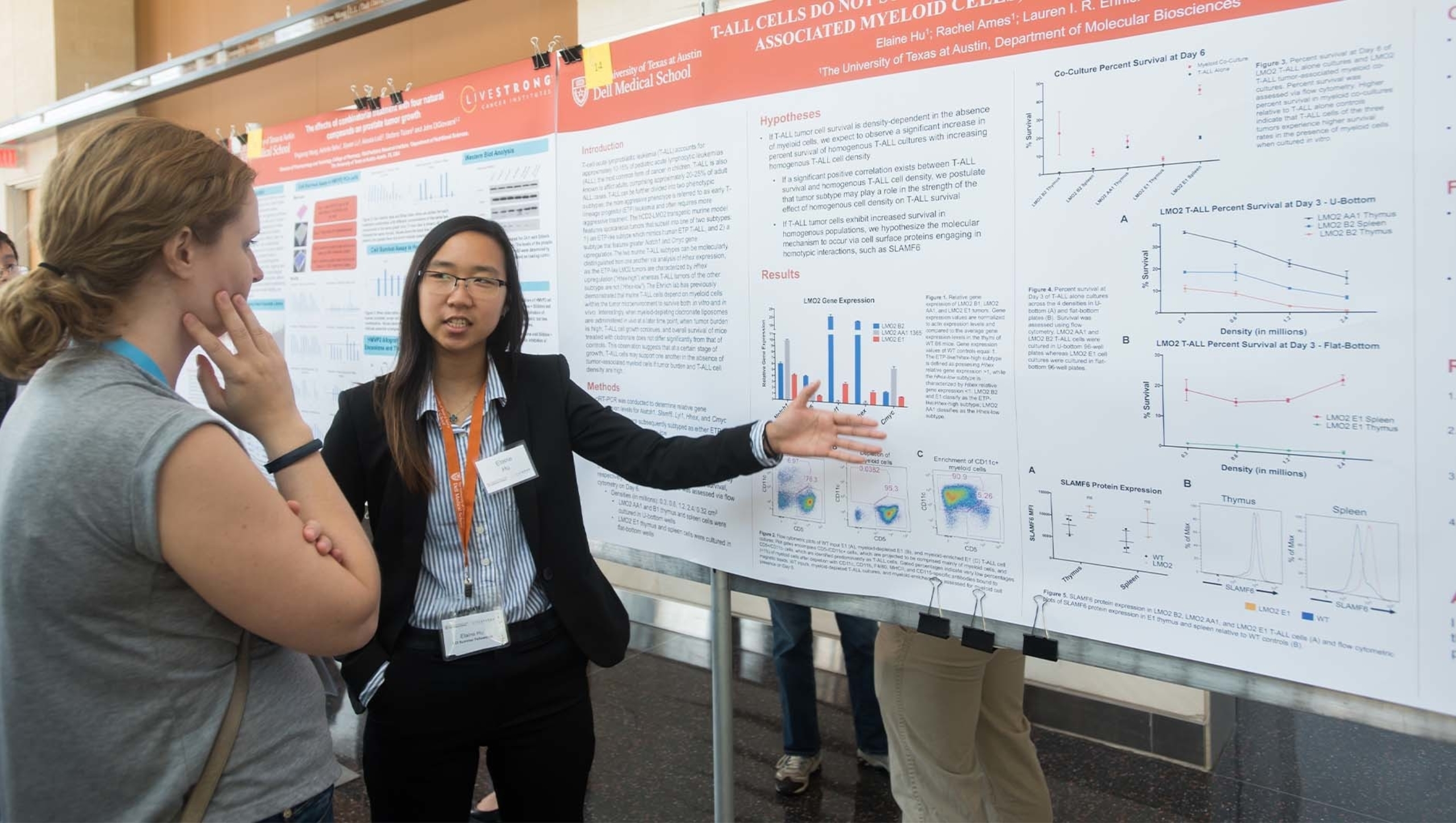Just a third of cancer doctors and researchers are women. And the percentage of Black and Latinx oncologists remains in the single digits. What needs to change?
The summer before Ximena Cruz’s senior year at Akins High School was unique for a teenager: For two weeks, Cruz found herself immersed in the world of cancer care. From hands-on genetic tests with fruit flies to mentorship from world-class oncologists to producing a care plan for a fictional patient, Cruz and her peers got a taste for the broad array of opportunities in cancer research and care.
Cruz took part in the Summer Healthcare Experience (SHE) in Oncology at the Livestrong Cancer Institutes of Dell Medical School — an oncology education program for local high school students that has now expanded to nine other cancer centers across the country since its inaugural year in 2019, thanks to American Cancer Society funding. It’s one part of a larger effort by the institutes to increase diversity in the field right from the start.

Elaine Hu presents her work following the Summer Undergraduate Research Fellowship at the Livestrong Cancer Institutes.
“Diversity in medicine is important because it affects outcomes,” says Kristen Wynn, who oversees the institutes’ educational outreach; programs begin with the very youngest students through Livestrong at School, which introduces age-appropriate oncology curricula to K-12 students at Austin-area schools. “There is a lot of evidence that if patients are cared for by physicians who look like them or come from similar backgrounds, treatment outcomes improve. The outreach and education we do is to make sure that pathways to this field are as diverse as possible.”
For Cruz, a memorable moment was when S. Gail Eckhardt, M.D., director of the Livestrong Cancer Institutes, shared her own journey during a panel discussion. “She was an art major in college, and it helped me understand that there’s not just one avenue to becoming a health care professional,” says Cruz, now a UT Austin undergraduate majoring in psychology. “SHE showed me that medicine isn’t this small box. It’s a huge field with lots of opportunities and different entryways.”
Strengthening the Research Workforce
Also counted among the institutes’ summer offerings is the Summer Undergraduate Research Fellowship: With a focus on recruiting diverse fellows, SURF pairs 20 college students from all over the country with a Dell Med or UT Austin cancer researcher, from oncologists to neuroscientists to pharmacists. The 10-week program culminates with a poster session when student researchers present their findings.
“These students come from all over the country to do really meaningful work with experts in cancer research,” says William Matsui, M.D., deputy director of the Livestrong Cancer Institutes and interim vice dean of research at Dell Med. “They’re not just being handed exercises to learn; they’re actively contributing important work to the field, and at the same time getting a chance to see how research has the potential to touch many lives.”
Lavender Hackman, now a UT Austin nutrition doctoral student, participated in SURF the summer after her junior year at UT Austin. She worked in the nutritional sciences lab of Stefano Tiziani, Ph.D., investigating drugs that amplify the effects of an enzyme called cysteinase. Cysteinase depletes the amount of an amino acid needed for certain cancer cells to proliferate, with important implications for treatment.
“SURF was my first exposure to cancer research,” says Hackman, who still works in Tiziani’s lab while volunteering with the institutes’ other educational programs. “In addition to the lab work, they brought us to lectures on all kinds of cancer-related topics. We were also exposed to clinical research, social work and many facets of patient care. I liked seeing the direct impact cancer research has and how it influences the entire care team.”
Like Hackman, Brittney Fernandez has continued to work with her SURF mentor Lailea Noel, Ph.D., an oncology social work researcher focused on cancer care and health equity. Fernandez, who is bound for medical school in a few short years, has been researching the experiences of LGBTQ+ cancer survivors, with the goal of identifying and addressing gaps in access and care quality.
And thanks to a connection she made while a SURF fellow, she is shadowing Kirsten Nieto, M.D., a hospitalist who is dually board-certified in pediatrics and internal medicine — a path Fernandez herself is considering.
“My experiences in SURF reinforced my passion for medicine and research, and I was able to gain a huge professional network,” says Fernandez, who is the first in her family to attend a four-year university. “I didn’t have access to any physicians before SURF and now I have an opportunity to do daily work that has reinforced my belief in the path that I’m on.”